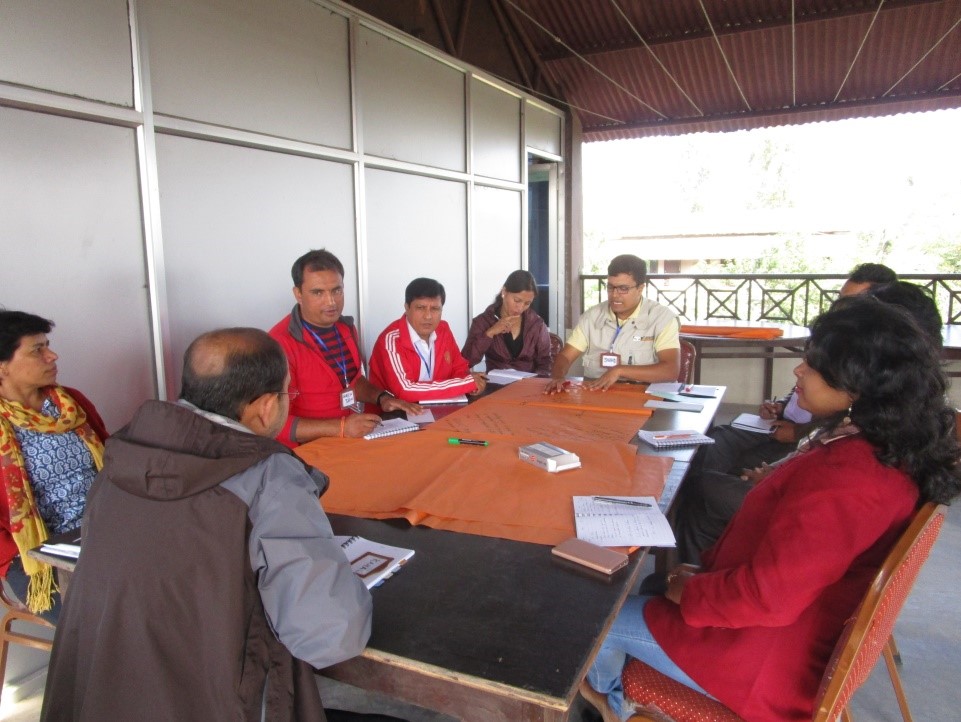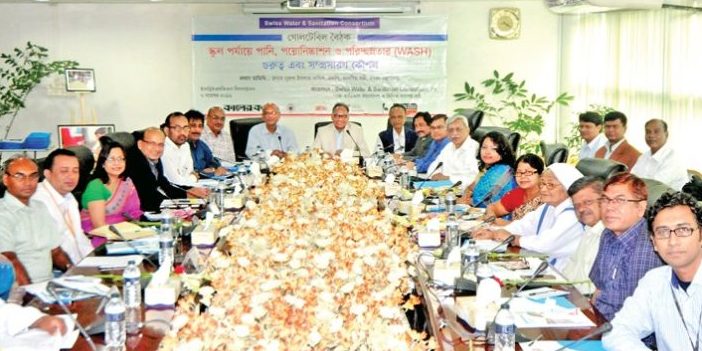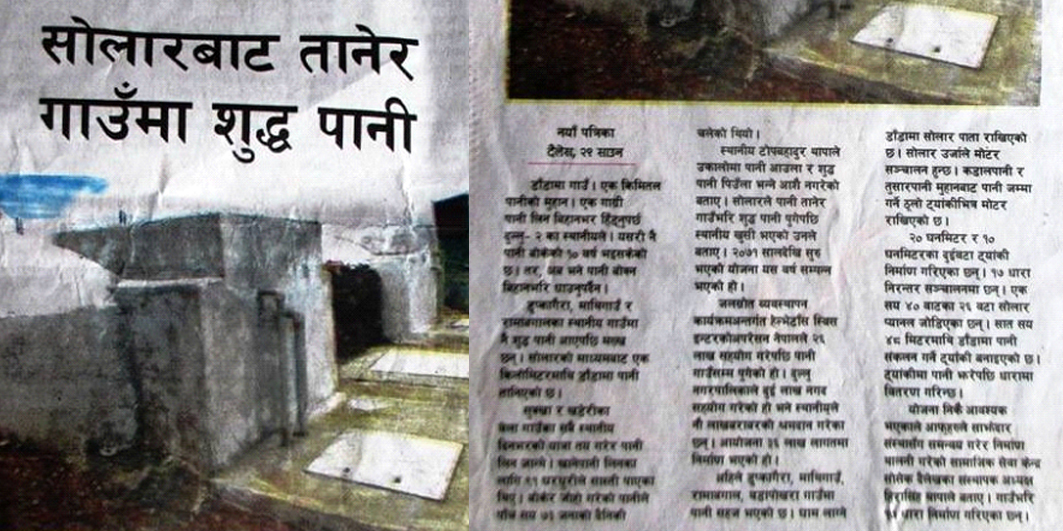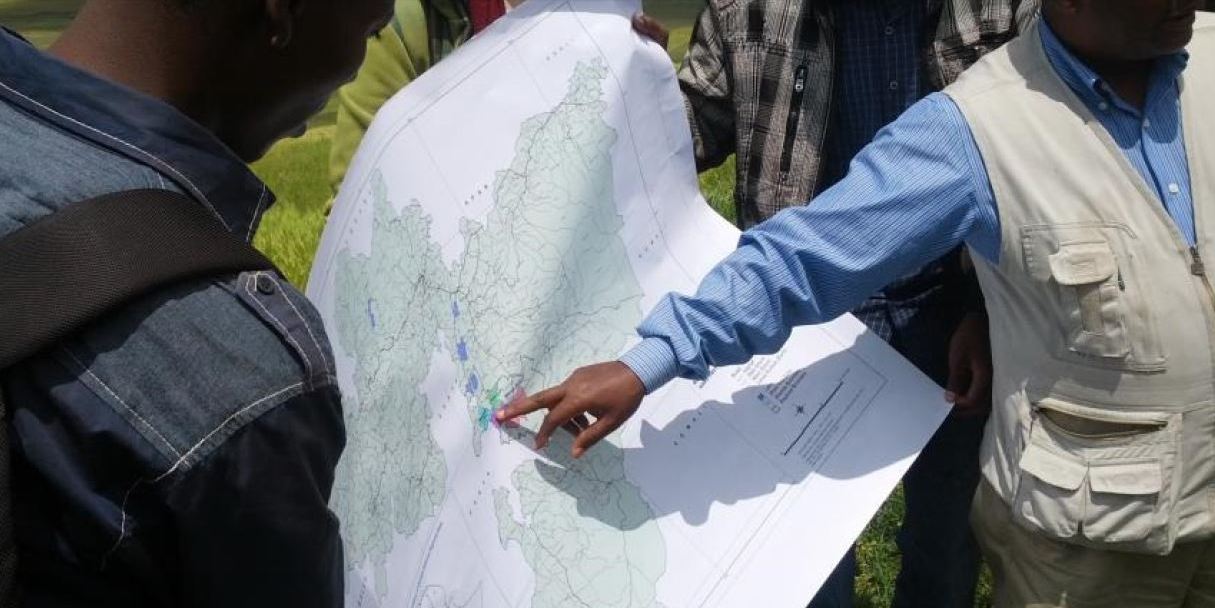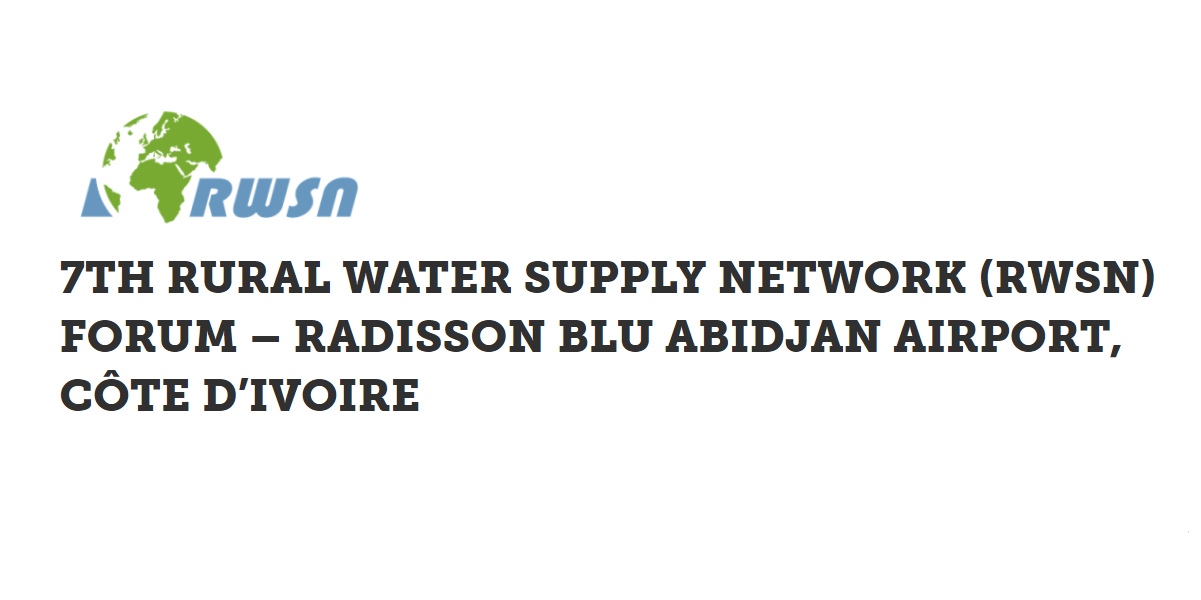
Under the topic “Water for Everyone”, the 7th Rural Water Supply Network (RWSN) Forum took place from 29th November – 2nd December, 2016 in Abidjan, Côte d’Ivoire. 444 delegates (water users, practitioners, service providers, political leaders, researchers, funders and policy makers) from 65 countries across 6 continents attended the Forum to share experiences, discuss and learn from others.
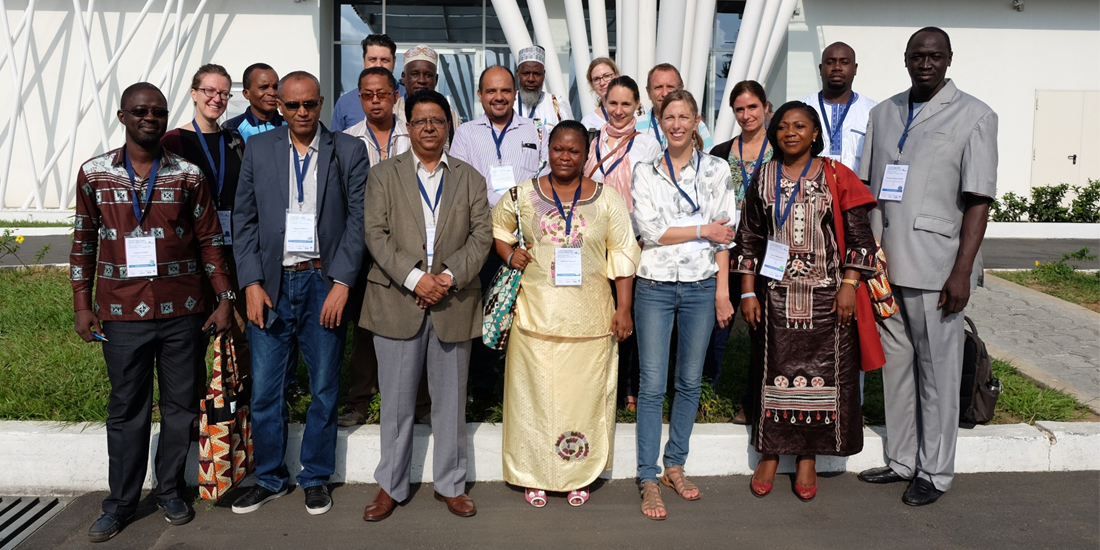
From the Consortium, 10 project staff members from 7 countries (Nepal, Bangladesh, Mozambique, Niger, Benin, Ethiopia, Madagascar) and 9 projects, as well as the whole Consortium Management Unit (3 Regional Advisors, Coordinator and Knowledge Manager) participated at the forum. Furthermore, one representative of the local government counterpart of one Consortium project participated at the Forum. And two other colleagues from non-Consortium projects in Bolivia and Benin participated and actively exchanged in the discussions.
The Forum was a great opportunity to share knowledge and create connections within and beyond the Consortium. In total, the Consortium members contributed 9 papers, posters or videos to the Forum (see list below) and shared their experiences on how to involve the private sector, improve WASH in Schools or enhance monitoring systems with very successful presentations. Adaptation to climate change, sustainability, technical support, tariff setting, PPPs, ICT for WASH, decentralisation – a whole range of topics were openly discussed in several parallel sessions – and allowed for many learnings and new inputs to follow up!
For example, Consortium colleagues from Mozambique are highly motivated to further learn from the Consortium colleagues in Madagascar on how to engage the private sector for investments for water supply systems. The different teams involved in mobile monitoring quickly engaged on the topic and exchanged on their experiences, advantages and disadvantages of different tools available. And from Ethiopia, the capacity building approach to couples for community and women empowerment might inspire even beyond the Forum, as the paper was cited in the Spanish newspaper El País (see Misión: Agua para todos / Mission: Water for all).
The Consortium/SDC booth was a great meeting point for all our colleagues and others. New contacts were established, relationships build and inspiring discussions held. The Forum was the first time, project teams from all three regions have met in one place, what made the Consortium participation at the RWSN Forum 2016 besides the advocacy possibilities and all the sharing and learning opportunities a big success!
Contributions of Consortium member organisations & partners:
|
FILM: Écoles Bleues
Présenté par Monique Gbaguidi, HELVETAS Swiss Intercooperation
|
|
|
POSTER: Mobile-based Monitoring Systems
Presented by Rubika Shrestha (HELVETAS Swiss Intercooperation), and Mohammad Shahnewaz Morshed (Tdh Foundation Bangladesh)
|
|
|
PAPER: Investisseur gestionnaire : une alternative pour le financement d'un service durable?
Presented by Heritiana Alain RAKOTOMALALA,
HELVETAS Swiss Intercooperation Madagascar, Madagascar
|
|
FILM: Mini-Réseaux Solaires – Une eau de proximité, Bénin
Presented by Monique Gbaguidi,
Helvetas Swiss Intercooperation Benin
|
POSTER: Rock Catchment in South Sudan
Caritas Switzerland, South Sudan
|
POSTER: Drinking water quality and water users’ treatment practices
A field study of piped schemes in Mid-Western Nepal
TU Delft, Eawag / Sandec, World Health Organization, HELVETAS Swiss Intercooperation
|
POSTER: PosterShare, learn, scale-up - How working as a Consortium makes a difference
Swiss Water & Sanitation Consortium
|
|
FILM: Transformation des puits à grand diamètre au Bénin
Presented by Alice Chabi Guiya, HELVETAS Swiss Intercooperation, Bénin
|
|
FILM: Evaluating water safety for supply schemes in remote areas. Novel approaches to comply with SDG 6.1 in rural Nepal
EAWAG, HELVETAS Swiss Intercooperation, Nepal, UNESCO-IH
|
|
PAPER: The difficulties of replicating success stories: The case of Domestic Rainwater Harvesting
Matthias Saladin1, Ramesh Bohara2
1Skat Consulting Ltd., 2Swiss Water and Sanitation Consortium, Kathmandu, Nepal /
|
|
PAPER: Local experiences in water management. Water governance and integrated management of water resources promoted by municipal associations of Bolivia
Javier Zubieta, Carlos Saavedra, HELVETAS Swiss Intercooperation, La Paz, Bolivia |
|
EVENT : Behavior Change Networking Event, organized by HELVETAS Swiss Intercooperation, Eawag, World Vision, CAWST, Evidence Action, SDC
Massive resources are invested in water and sanitation facilities to ensure access to water and sanitation for all. Yet, efforts to date are not sufficient to provide people with facilities. And: facilities are useless if not used properly. WASH infrastructure and WASH products must be linked up with behavior change interventions or marketing activities around hand washing, latrine use and maintenance, water treatment, water storage, and payments for water fees. How do you influence behavior in the field? Join us for an interactive sharing of experiences.
|
|
SEMINAR: A new pathway to fulfilling human rights to water & sanitation, organized by WIN, Caritas, Helvetas
- Water Integrity Charter as a tool to promote Integrity at national level in Benin by Francoise Ndoume, Water Integrity Network and Arnauld Adjagodo (PNE Benin)
- Addressing governance and management challenges in small scale water supply systems in Kenya by Lucie Leclert, Caritas Switzerland
- Connecting local Water Integrity programmes to national level policy & advocacy processes by Rubika Shreshta, Helvetas Swiss Intercooperation Nepal
|
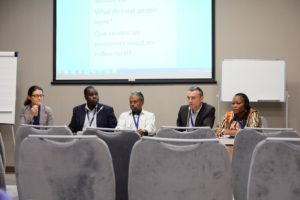
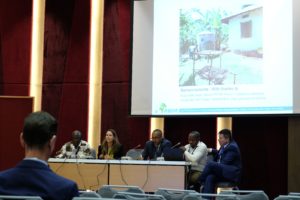
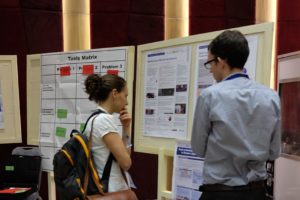
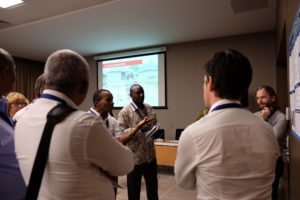
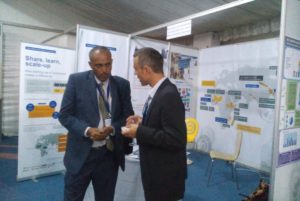
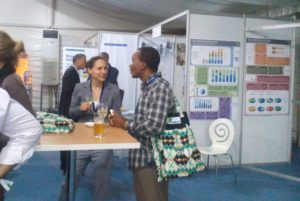
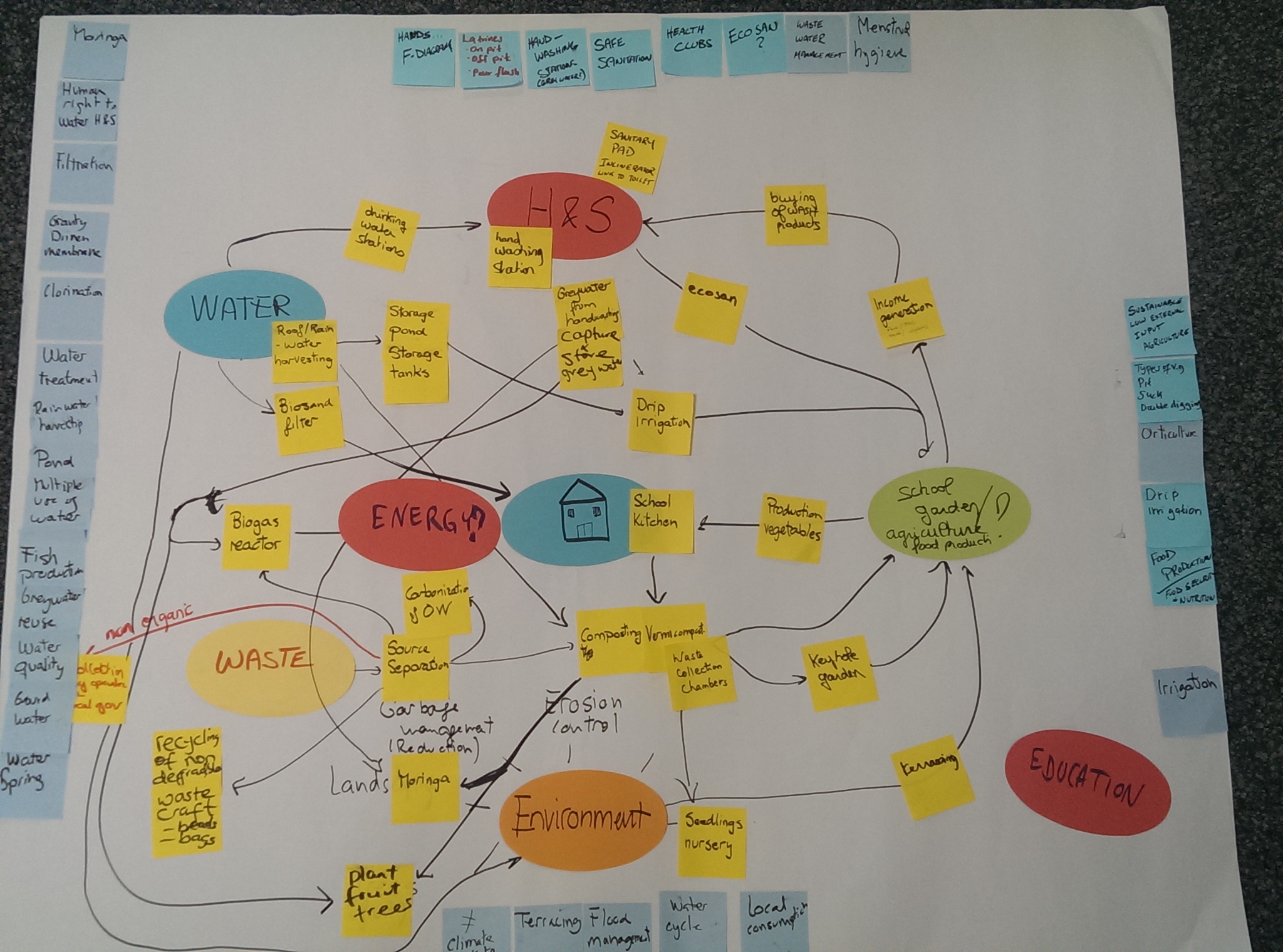 Fig 2. Circular Flows in a Blue School
Fig 2. Circular Flows in a Blue School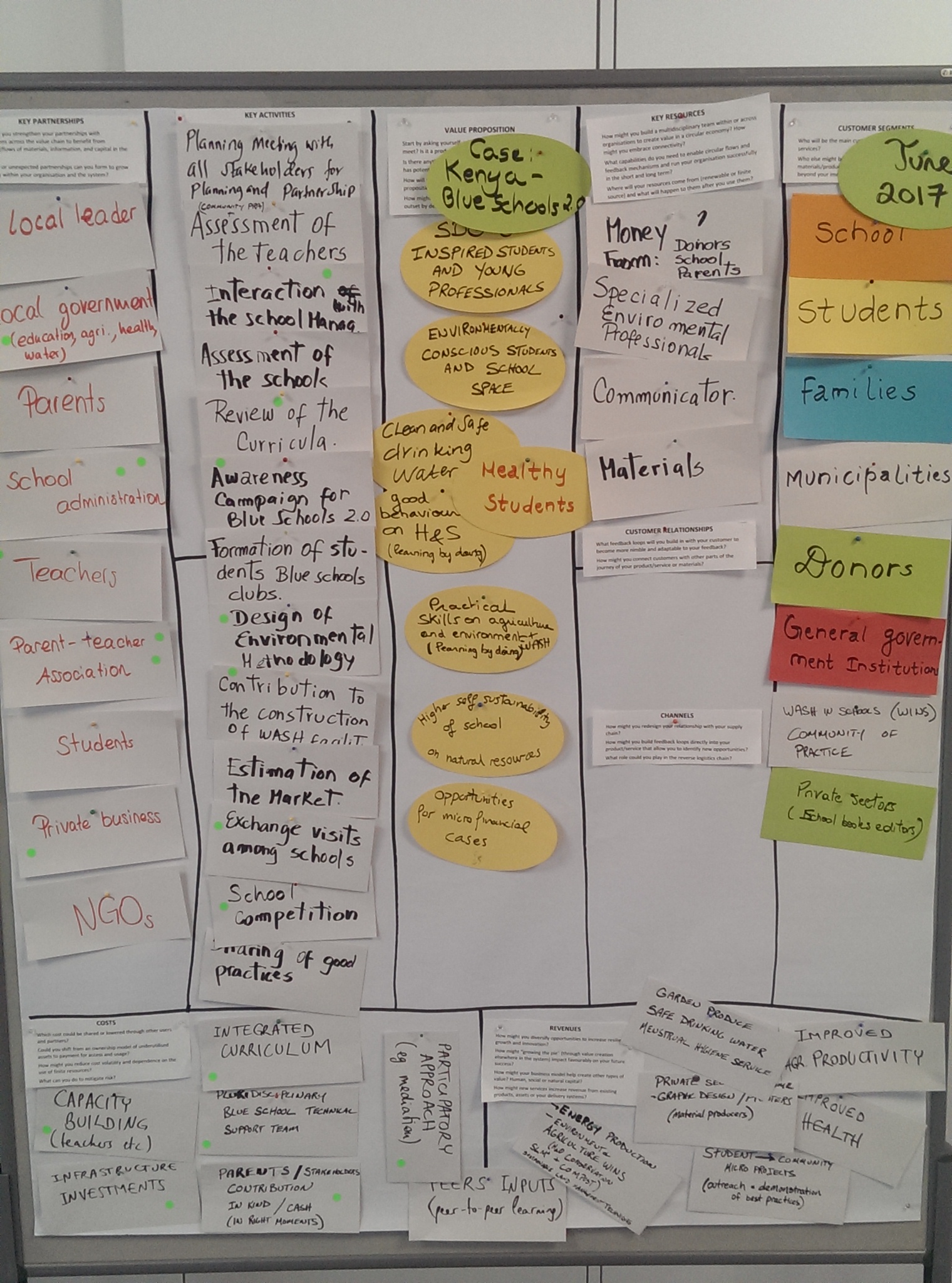 Fig 3. Circular business model for Blue Schools
Fig 3. Circular business model for Blue Schools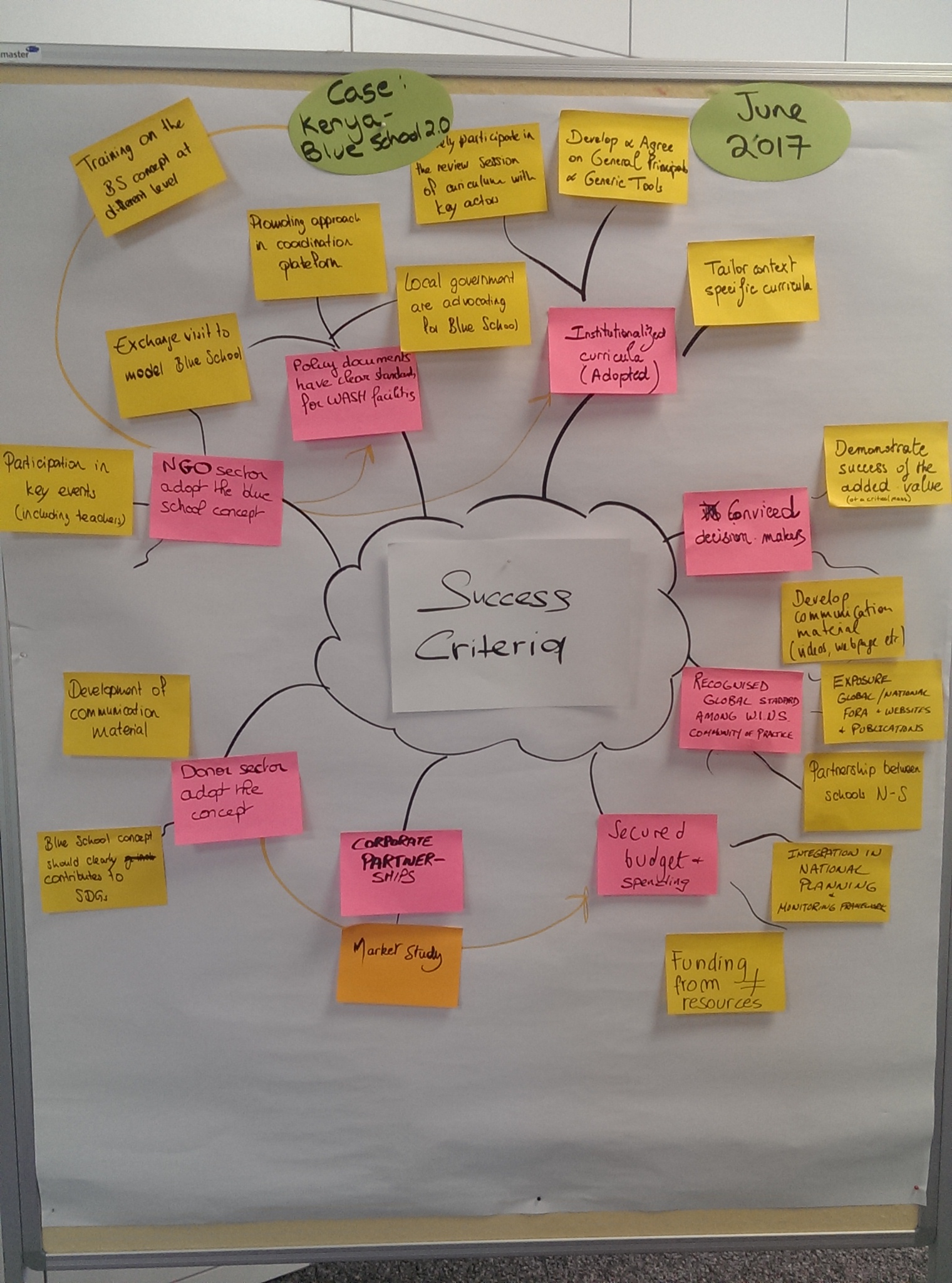 Fig 4. Success criteria for Blue Schools
Fig 4. Success criteria for Blue Schools
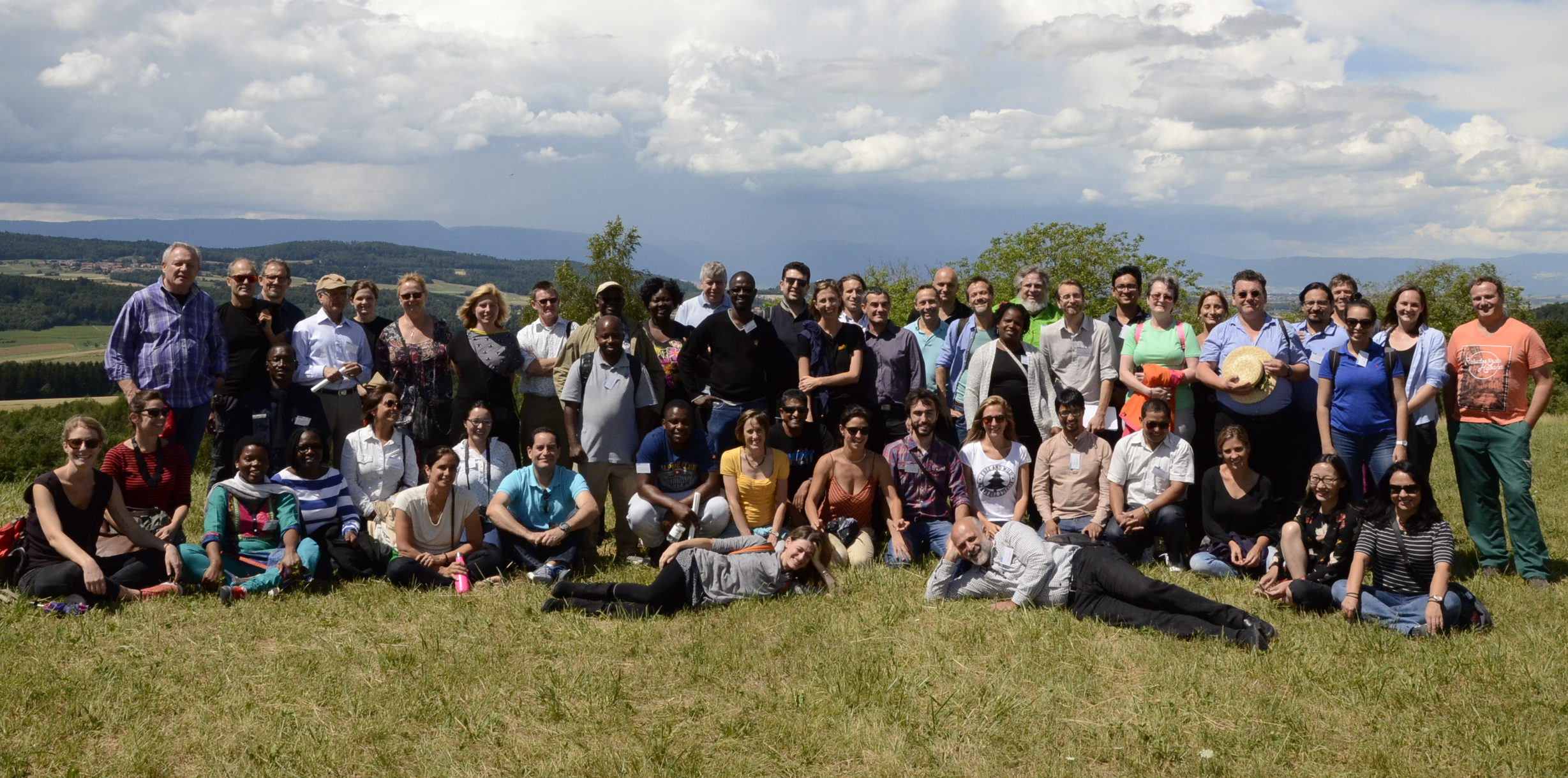
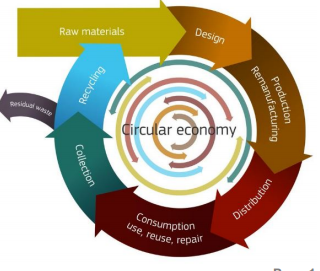
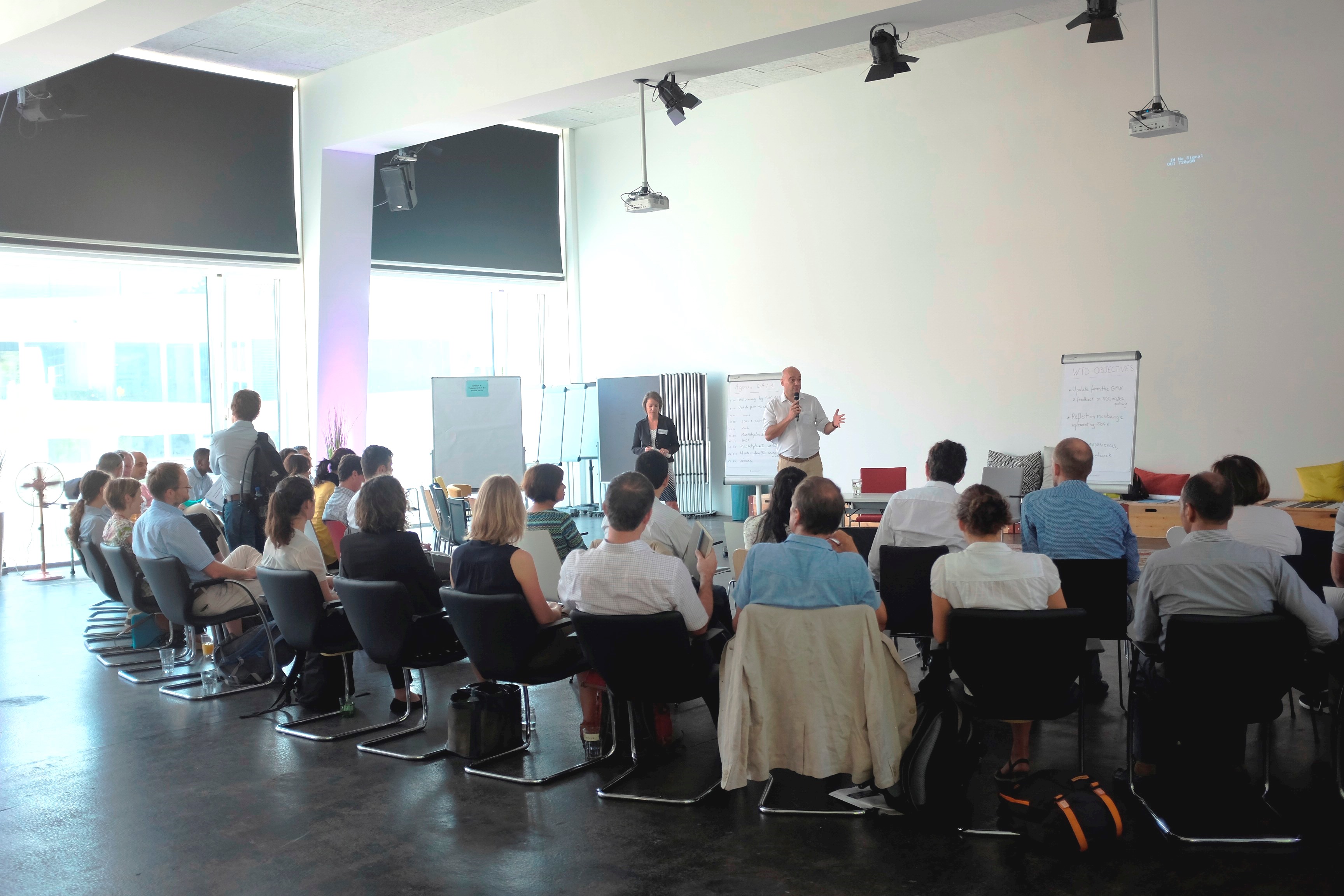
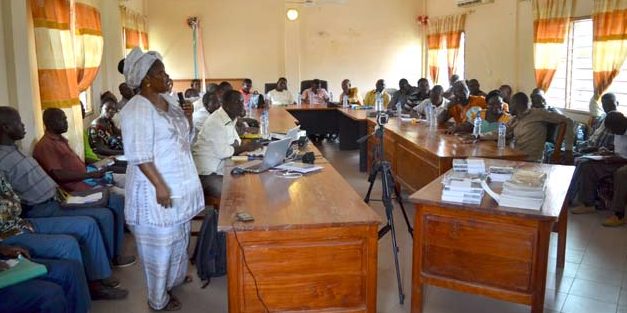








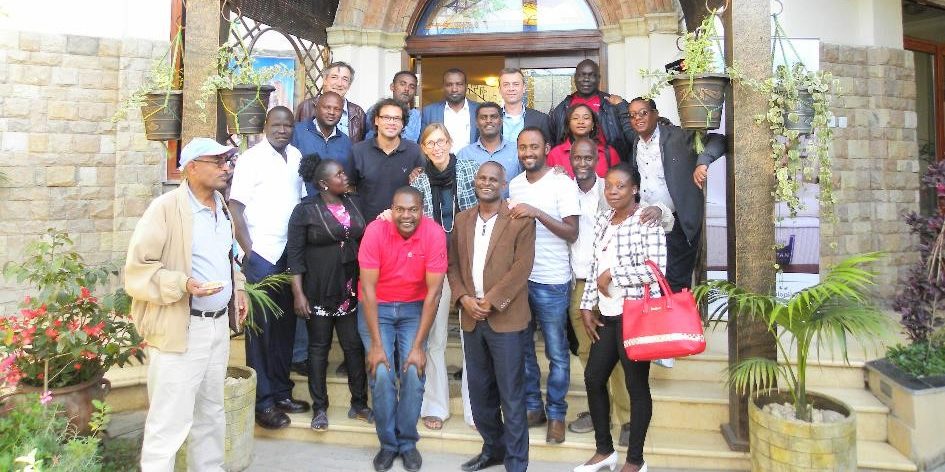 The Regional Workshop for Eastern and Southern Africa was held from 31 October to 4 November 2016 in Addis Ababa, Ethiopia and brought together 25 participants from 7 organisations from Ethiopia, Mozambique and South Sudan. The overall goal of the workshop was to foster knowledge sharing, present good practices and lessons learnt and strengthen cooperation between participants and project teams.
The Regional Workshop for Eastern and Southern Africa was held from 31 October to 4 November 2016 in Addis Ababa, Ethiopia and brought together 25 participants from 7 organisations from Ethiopia, Mozambique and South Sudan. The overall goal of the workshop was to foster knowledge sharing, present good practices and lessons learnt and strengthen cooperation between participants and project teams.